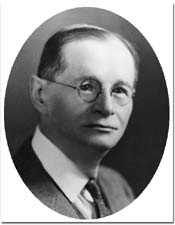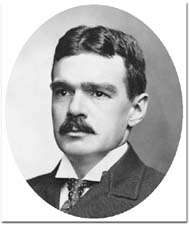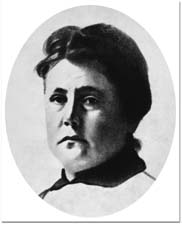![]()

Alexander C. Abbott, MD. In 1892, the year in which Abbott joined John S. Billings, MD, at Penn's Laboratory of Hygiene, he authored Principles of Bacteriology, the first textbook on bacteriology in the United States. As director of the Laboratory (School) of Hygiene from 1896 to 1928, he was instrumental in developing a graduate program conferring the degree of doctor of public hygiene, the nation's first such degree program. For many years Abbott also served as chief of the Philadelphia Bureau of Health. He contributed to the medical literature on a variety of topics, including disinfection, diphtheria, tuberculosis, cholera, immunity, sewer air and ventilation. (University of Pennsylvania Archives)
Lydia Rubinowitsch, MD. Among the early matriculants in Penn's Laboratory of Hygiene, Rubinowitsch became the first director of bacteriology at the Woman's Medical College of Pennsylvania. She spent most of her career in Berlin at the Koch Institute, where as the only female co-worker of Robert Koch, she investigated tuberculosis in milk and butter. (American Society for Microbiology Archives)

David Hendricks Bergey, MD. Bergey, who matriculated as a student in the Laboratory of Hygiene in 1893, taught here from 1895 to 1932. His Manual of Determinative Bacteriology, first published in 1923, remains a classic text in bacteriology. Bergey also founded the Eastern Pennsylvania Chapter of the Society of American Bacteriologists, now one of the nation's most active branches. (American Society for Microbiology Archives)

